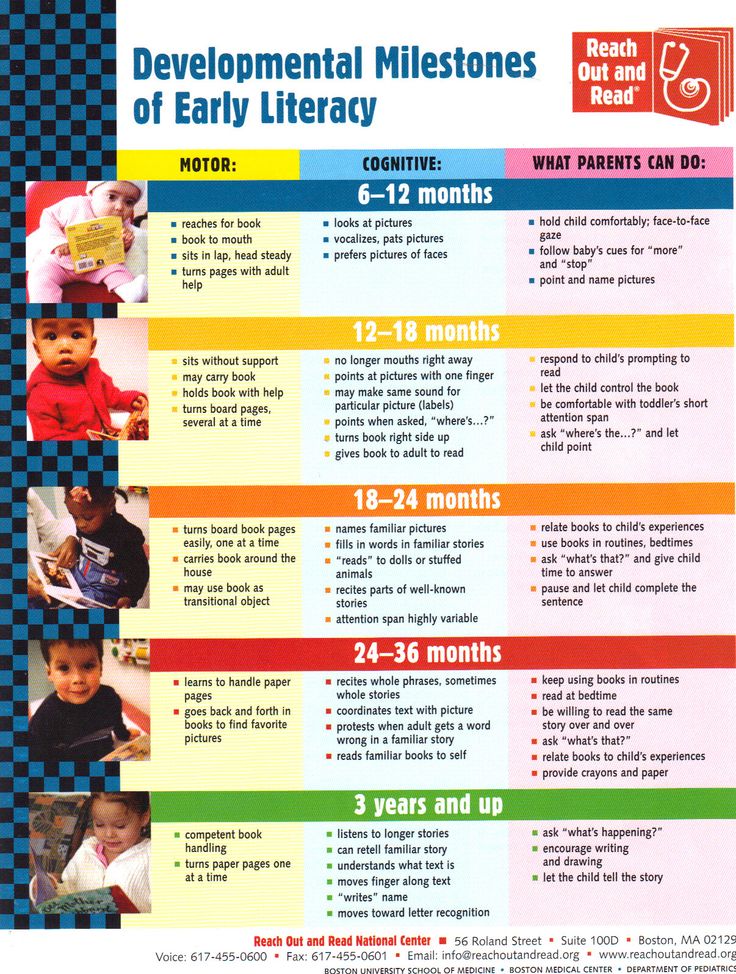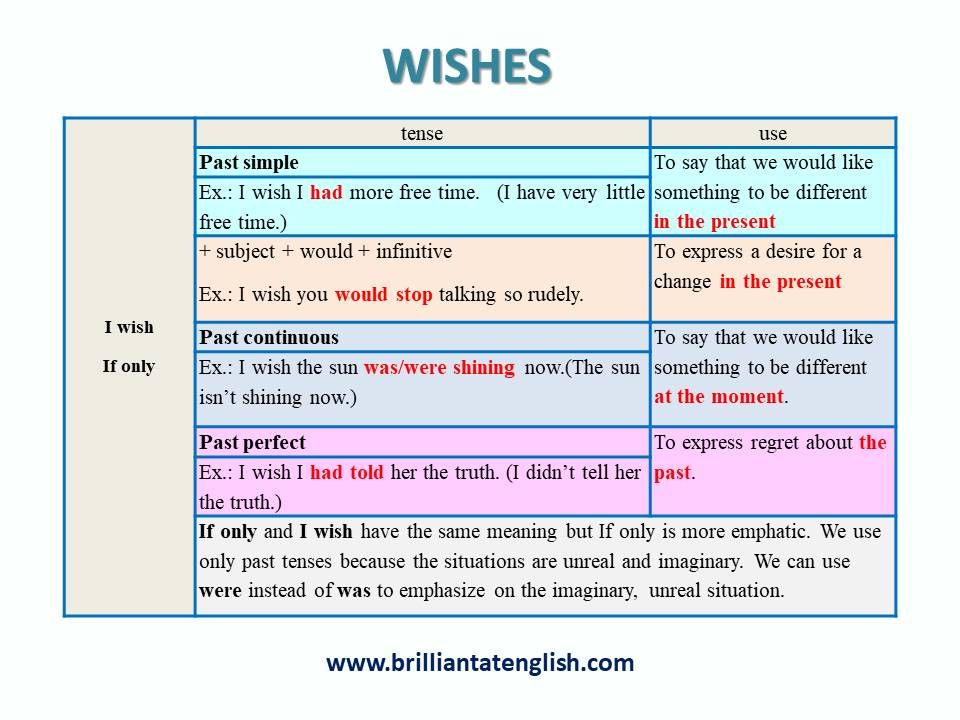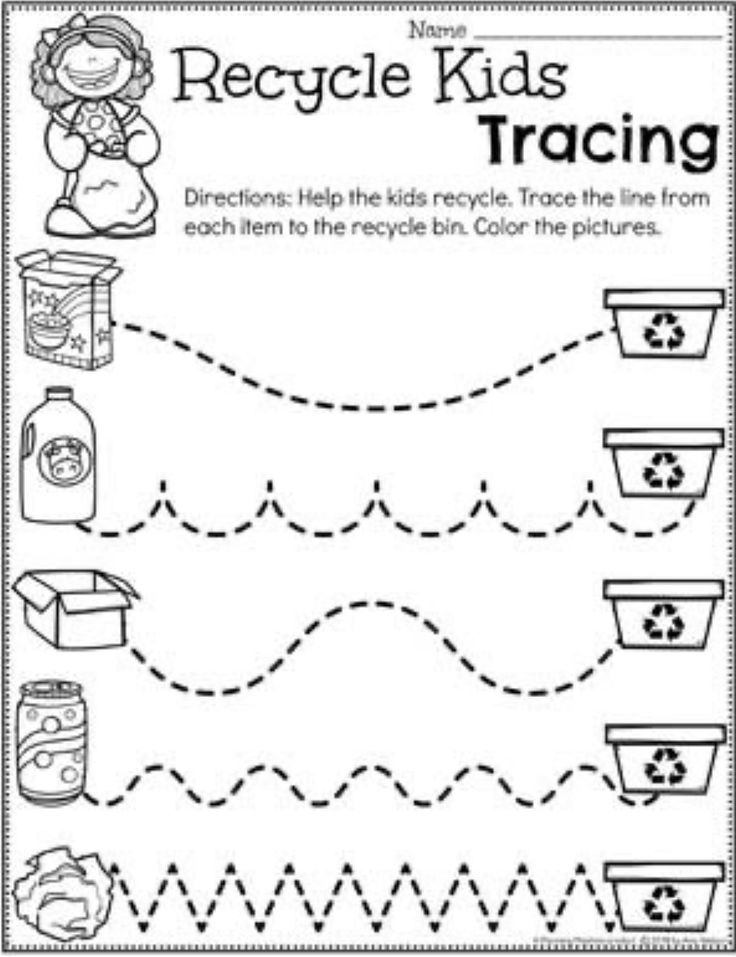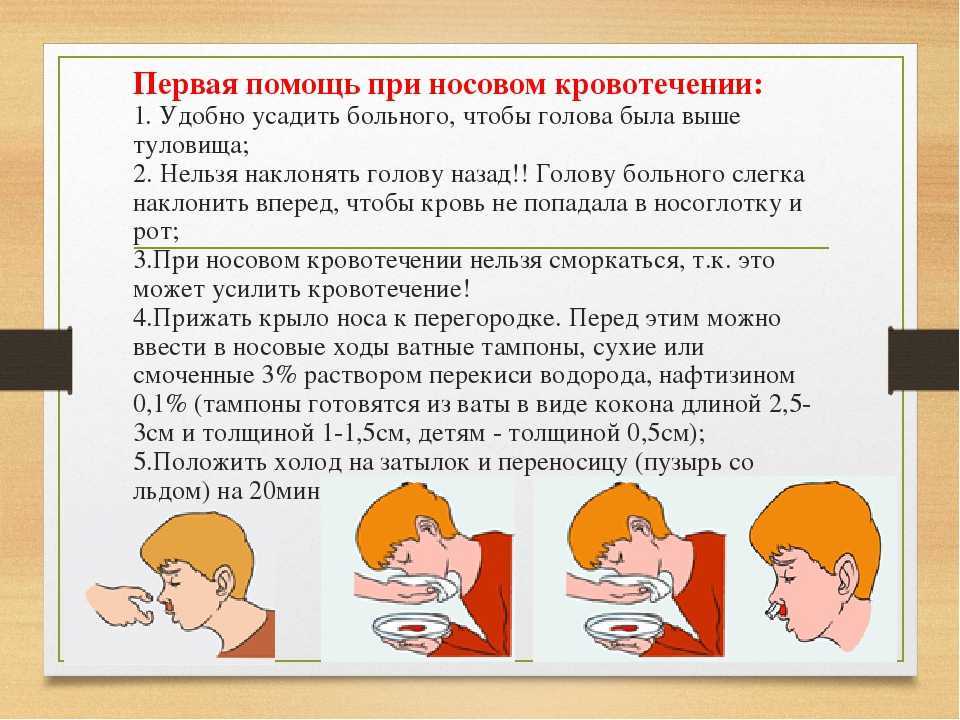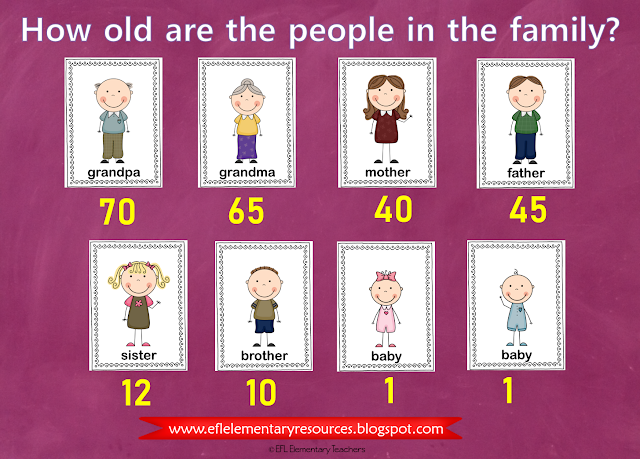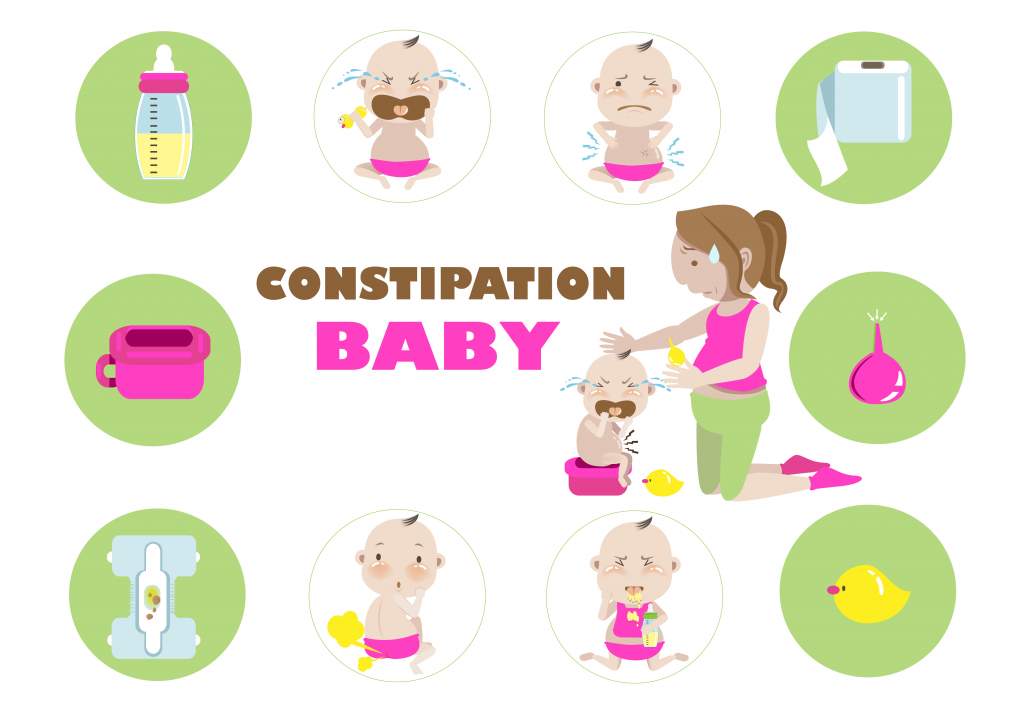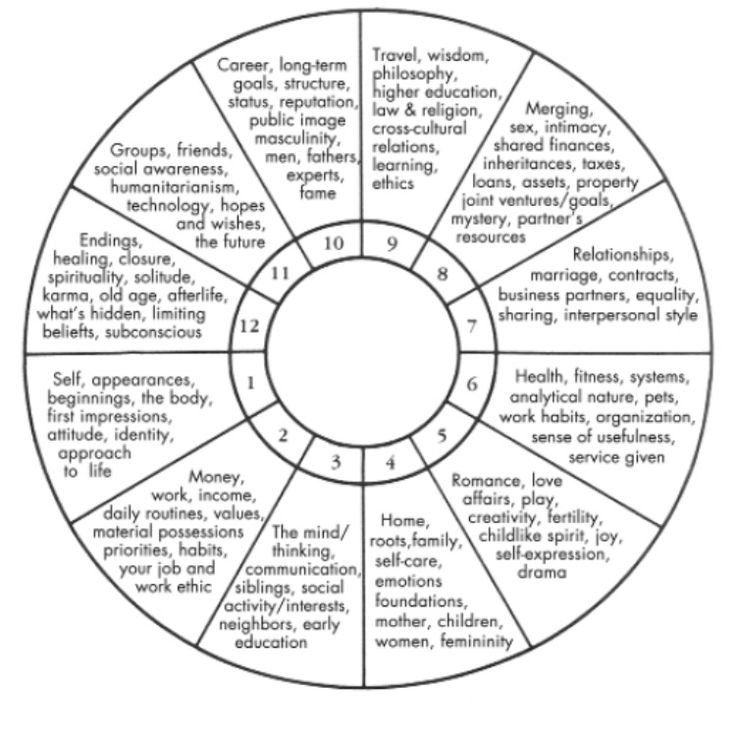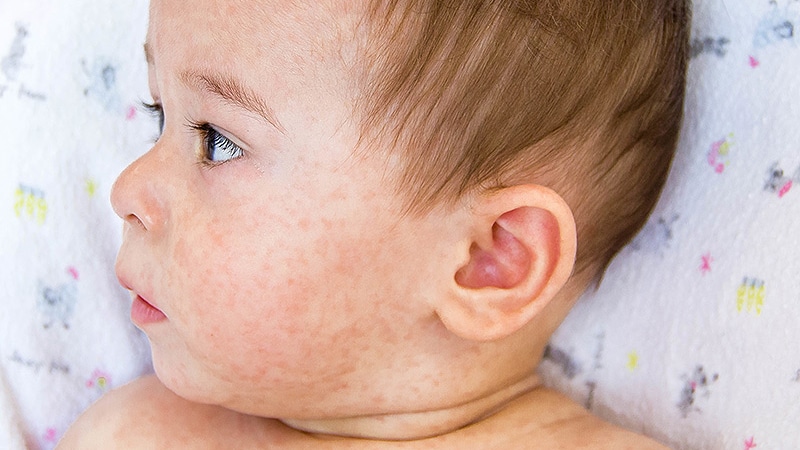How long is a child's attention span
Normal Attention Span Expectations By Age
"Pay attention!" "Focus!" "Just two more pages, then you can take a break." Virtually all parents have tried pleading with their kids to get them to buckle down and focus. Kids have short attention spans, after all. But when do you know if your child's inattention is an issue that needs to be addressed? Having age-appropriate expectations about attention spans is a good place to start.
Attention Spans by Age
Childhood development experts generally say that a reasonable attention span to expect of a child is two to three minutes per year of their age. That's the period of time for which a typical child can maintain focus on a given task.
Average attention spans work out like this:1
- 2 years old: four to six minutes
- 4 years old: eight to 12 minutes
- 6 years old: 12 to 18 minutes
- 8 years old: 16 to 24 minutes
- 10 years old: 20 to 30 minutes
- 12 years old: 24 to 36 minutes
- 14 years old: 28 to 42 minutes
- 16 years old: 32 to 48 minutes
It's worth noting that some developmental researchers put the upper limit at five minutes per year of a child's age, meaning a 2-year-old could be able to focus on a task for up to 10 minutes at a time. Of course, these are only generalizations. And how long a child is truly able to focus is largely determined by factors like how many distractions are nearby, how hungry or tired the child is and how interested they are in the activity. But if your child's attention span is shorter than average, that's worth addressing.
Extending a Child's Attention Span
A few simple strategies might help your child find greater focus.
Bring creativity to tasks your child doesn't enjoy.
A kid who dislikes math won't focus well on math homework, so let him work out problems in finger paint on an easel first and copy the work onto the homework sheet later.
Try fidgets.
Fidgets are a wide category of products that kids can manipulate while focusing on other tasks.
Check-in frequently with your child when they're working on hard tasks.
A kid who feels overwhelmed or confused by the project they're working on will check out and get distracted quickly.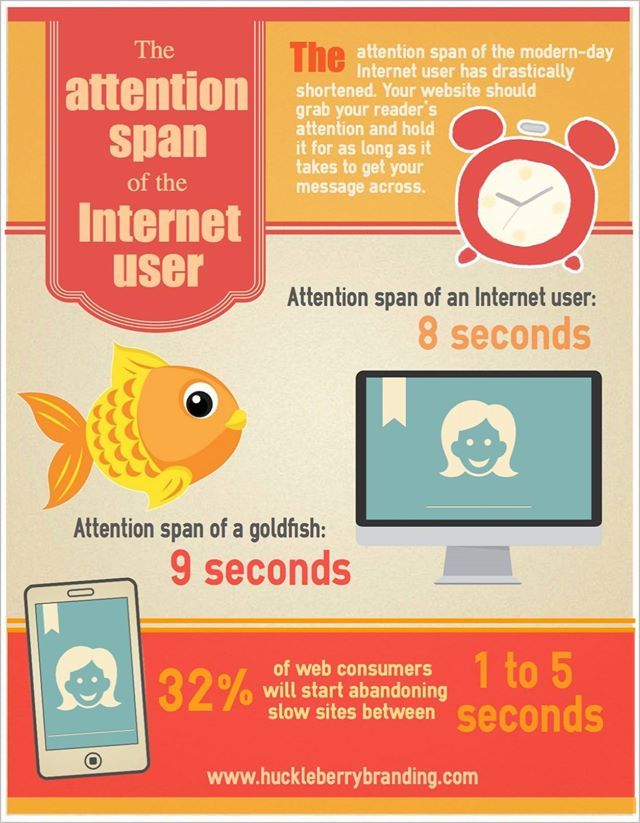 At the beginning of the task, help them identify potential stumbling blocks. If question 5 seems especially daunting, for example, start with that one and help your child figure out how to approach it.
At the beginning of the task, help them identify potential stumbling blocks. If question 5 seems especially daunting, for example, start with that one and help your child figure out how to approach it.
Build-in short breaks for tough tasks.
A 12-year-old might be able to give 40 minutes of focus to a project when it's broken into two 20-minute chunks with a five-minute break in between. Additionally, try working in a quick exercise to get the heart beating faster in between those two chunks of work. Exercise is a great way to activate the brain and a child's ability to comprehend and memorize.
After this year of at-home schooling and stress, many kids and teens are having an increased difficulty focusing and staying on task. The Brain Balance Program is designed to help kids, teens and young adults build the focus, behavior, and social-emotional skills to keep up in school. A Harvard study the Brain Balance Program to be an effective alternative to stimulant medication for kids with ADHD.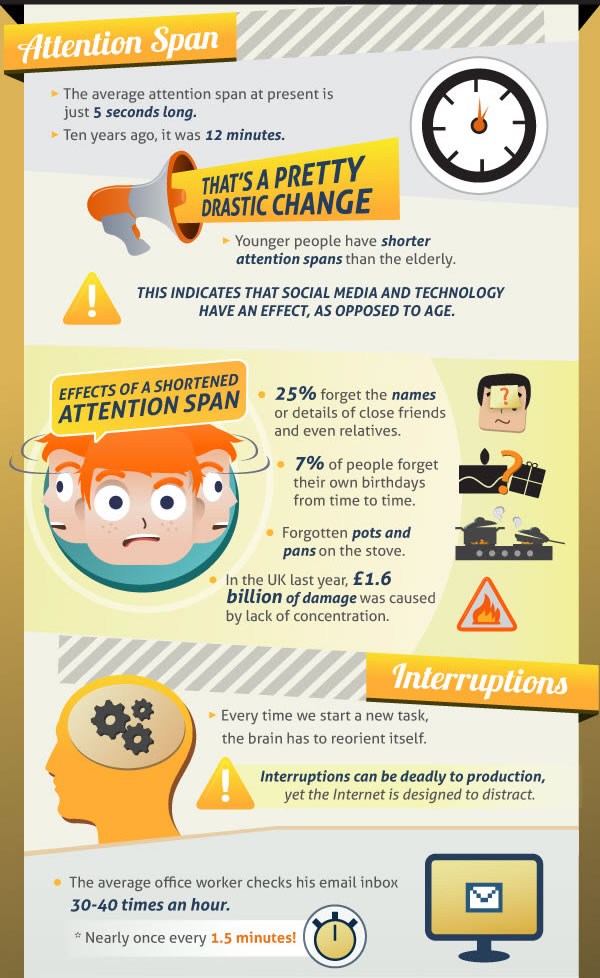
We invite you to fill out the form above, or take our online assessment below, and see how we can help you and your child.
1 https://blog.lingobus.com/chinese-learning-resources/how-long-can-your-child-stay-focused-and-how-can-you-help/
How Long Should a Child's Attention Span Be?
Children are known for having short attention spans, but how short is too short? Is your child just an excited kid with a lot on his mind, or is there something else contributing to the attention span? This guide explains how long a child’s attention span should be, along with tips for improving your child’s focus.
Average Attention Span by Age Group
If it feels like your child can only focus for five minutes, that may be entirely age-appropriate! Here are the average attention span durations for each age group:
- 2 years old: 4-6 minutes
- 3 years old: 6-8 minutes
- 4 years old: 8-12 minutes
- 5-6 years old: 12-18 minutes
- 7–8 years old: 16-24 minutes
- 9–10 years old: 20-30 minutes
- 11-12 years old: 25-35 minutes
- 13-15 years old: 30-40 minutes
- 16+ years old: 32-50+ minutes
Of course, every child is different.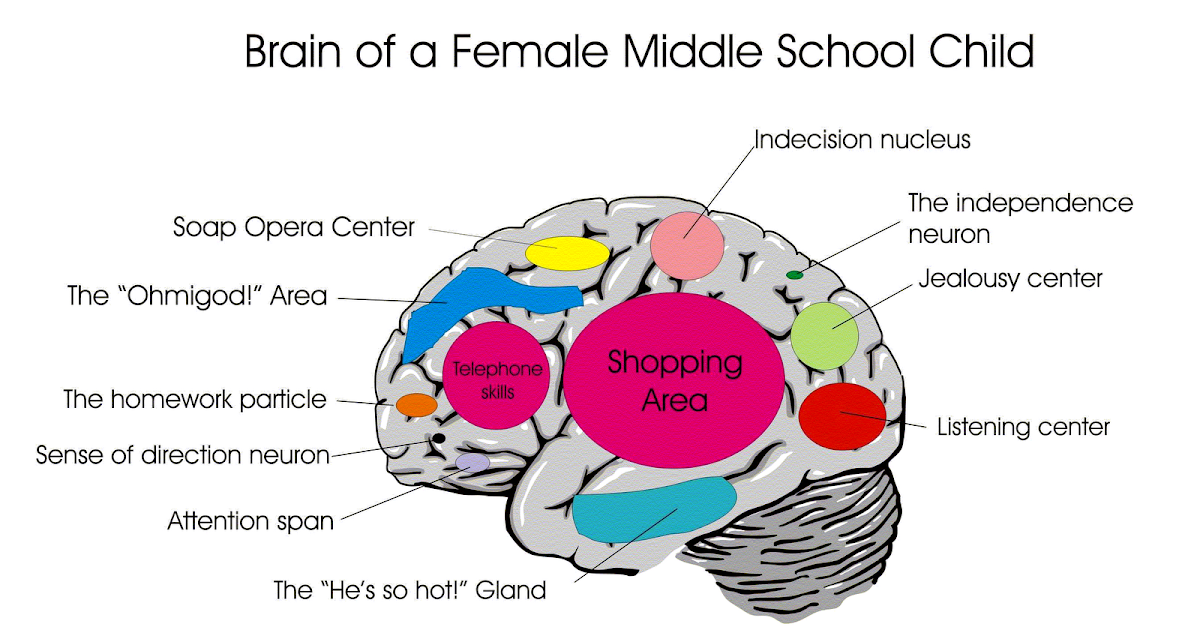 Some children may fall outside of that spectrum, but that should give you a reference point. If your child is in school and cannot focus for 5-10 minutes, there may be an underlying factor worth uncovering.
Some children may fall outside of that spectrum, but that should give you a reference point. If your child is in school and cannot focus for 5-10 minutes, there may be an underlying factor worth uncovering.
Is a Short Attention Span a Sign of ADHD?
A short attention span could be a sign of ADHD, but it’s not the official deciding factor. Children with ADHD struggle to focus, stay organized, and complete tasks from start to finish. They may get frustrated by tasks that require focus, or they may fidget throughout the day. Thus you may want to get an ADHD screening if your child has a short attention span, but don’t assume your child has ADHD just because of a short attention span.
Does Screen Time Impact Attention Span Development?
Yes, studies show that giving a child too much screen time “has been found to negatively impact attention span and language and cognitive development.” It can also lead to extreme tantrums, mood swings, sleep disruptions, irritability, aggression, and many other issues.
The American Academy of Pediatrics recommends avoiding screen time as much as possible until a child reaches two years old. From age 2-5, a child should only have up to one hour of high-quality screen time (enriching TV shows, games or activities). These recommendations may not align with all lifestyles, but this is the best approach to maximize attention spans and cognitive development.
If you’re struggling to manage your child’s behavioral issues, reducing his or her screen time could boost the quality of life for your household. Learn more: How to Reduce Screen Time and Boost Mental Health
Tips to Improve Your Child’s Attention Span
Reducing screen time is just one of many ways to improve your child’s attention span. If you can establish a consistent, predictable routine from day to day, your child will thrive in all areas. School, chores, family time and meal time all become muscle memory when there is a routine in place. This may make it easier to manage screen times and complete daily tasks without resistance.
Encourage your child to use his or her imagination. Play outside or use enriching activities that don’t rely on screens. Figure out what your child is interested in, and use that as a tool for growth.
If your child is struggling in school or at home, it may be time for a professional evaluation. One of our licensed neuropsychologists could assess your child’s strengths, symptoms and struggles to determine if there is an underlying condition at work. A learning disability, ADHD, autism and many other conditions may be contributing to the short attention span and subsequent frustrations.
CNLD Testing & Therapy offers a wide range of psychological testing services, as well as personalized treatment plans and educational advocacy. Reach out to (734) 994-9466 to start your journey.
types and features - Academy of Development
Very often, in a fit of impulse, parents can not stand it and fill up a small child with reproaches and accusations of absent-mindedness and forgetfulness. Remember how often you have to hear exclamations addressed to the baby: “What is in your head?”, “How can you be such a gaper?”, “Are you in the clouds again?”
Remember how often you have to hear exclamations addressed to the baby: “What is in your head?”, “How can you be such a gaper?”, “Are you in the clouds again?”
Indeed, almost every day a child has to hear such claims addressed to him. An adult believes that a preschooler does not know how to direct his attention to the desired goal. Therefore, quite often, mothers and fathers give their child a “diagnosis” - absent-mindedness. nine0003
This situation needs to be sorted out. You can understand the essence of the problem by saying all your claims to the child, but not out loud. Happened? The answer to the question is very close and after such an experiment it becomes absolutely obvious. A child can concentrate, but his attention is focused on what is important to him, and not to an adult.
What is attention?
Attention is a mental process, which consists in the selection of the necessary information in a particular situation and the complete rejection of the unnecessary. nine0003
nine0003
The bottom line is that external attention is focused on objects, personalities, phenomena surrounding a person, in addition to the actions of other people and changes. The child has this feature from the first days of life. The newborn reacts to the voice of his relatives, turns his head towards the source of the noise, and focuses his attention on his relatives.
The attention of young children, whose age is from 3 to 6 years, is focused on their experiences and feelings of the inner world. The maximum concentration of the baby's internal attention is achieved at the moment when the child seems to freeze and look intently at some object, but as if not seeing it. At such moments, the child does not react to the reproaches of adults, does not hear the speech addressed to him. It is these situations that adults call absent-mindedness. nine0003
Types of attention
Psychologists distinguish three types of attention.
- Involuntary attention does not require efforts that cause, fix and keep it, such a process arises by itself.
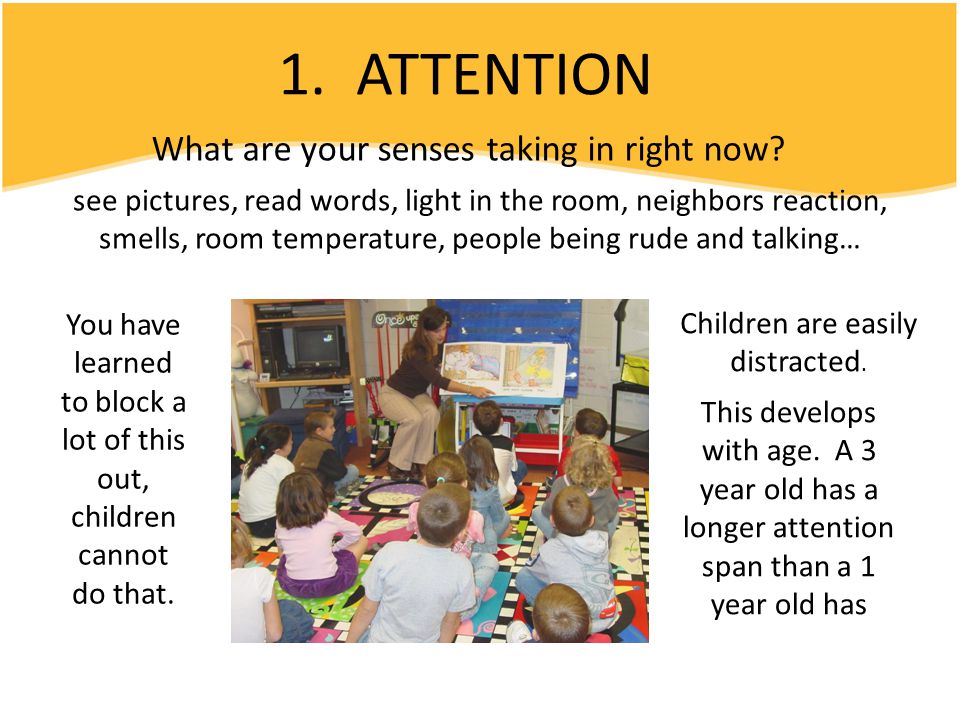 Often such attention is caused by vivid experiences, noisy events. Interest quickly arises, but also quickly disappears. Since the subject that provoked such interest very quickly becomes commonplace and understandable. Thus, involuntary attention disappears. nine0022
Often such attention is caused by vivid experiences, noisy events. Interest quickly arises, but also quickly disappears. Since the subject that provoked such interest very quickly becomes commonplace and understandable. Thus, involuntary attention disappears. nine0022 - Voluntary attention is a type of attention that is especially important when the baby does not do what he wants, but performs those actions or tasks that are necessary. Often children give up their favorite or simply interesting activity in order to complete the necessary task. Psychologists directly link the level of speech development of children from 3 to 7 years old with the successful formation of this type of attention.
- Post-voluntary attention is a type of mental process that is formed from voluntary attention and combines the qualities and main characteristics of the previous two types. This happens at the stage when the preschooler is completely addicted to the game element or the task that interests him.
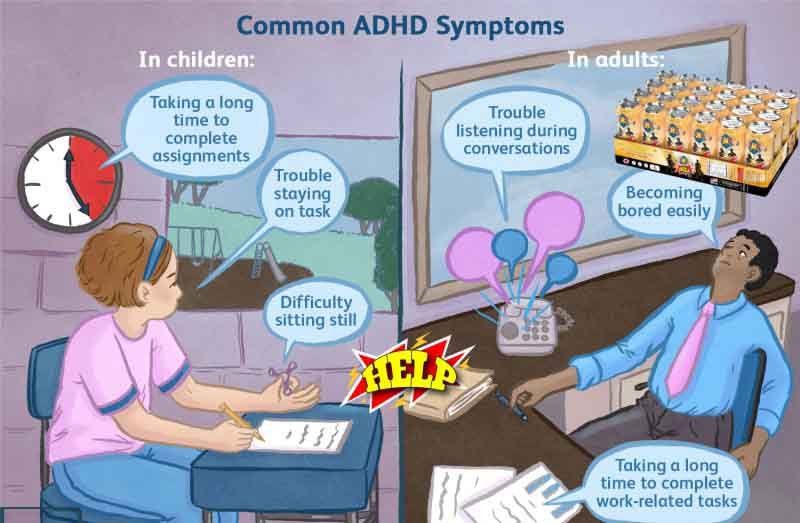 The child does not make special efforts, efforts to focus on the implementation process. Thus, the child manifests post-voluntary attention. nine0022
The child does not make special efforts, efforts to focus on the implementation process. Thus, the child manifests post-voluntary attention. nine0022
Attention: basic properties
The main qualities and characteristics of the attention of preschoolers include: concentration, switchability, volume, stability, selectivity, distribution.
Concentration of attention is the ability to quickly focus on the subject, as well as to keep attention on the object as much as possible without succumbing to distractions.
The concentration of attention in preschool children is quite low, so you should work on its development. To achieve your goal, you need to choose the right exercises. You can form the necessary level of attention and its properties by enrolling the baby in courses to prepare children for school. nine0003
An exercise to improve concentration. With the baby, you should try to learn small poems. The first part of the rhyme must be learned with the TV turned on.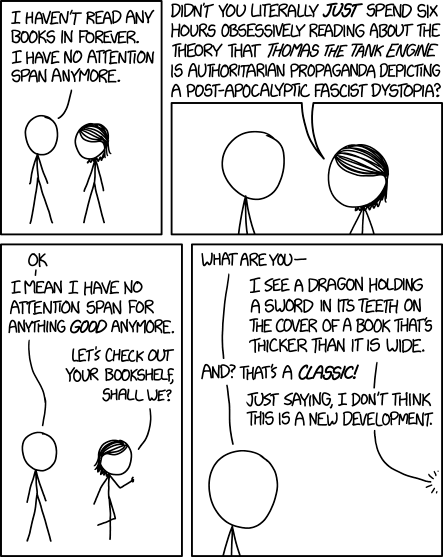 The volume should be kept to a minimum. Learn the second quatrain with your child at a louder radio, TV or other source. You should try to memorize the final part of the verse by turning on the TV loudly enough.
The volume should be kept to a minimum. Learn the second quatrain with your child at a louder radio, TV or other source. You should try to memorize the final part of the verse by turning on the TV loudly enough.
Switchability is a property of attention, which consists in the ability to concentrate as quickly as possible on one, and then on a completely different subject or type of activity. It should be remembered that a small child during such a change feels and often demonstrates discontent and tension with his behavior. The older the child becomes, the less pronounced this feature is. nine0003
The amount of attention can be characterized by checking the number of objects that remain in the field of view and which the baby is following. At 5-6 years old, the child simultaneously accompanies and holds three or more objects in the field of view. The attention of the baby at this age is more formed, and he notices quite small details. Whereas at 4 years old he is able to follow only one object.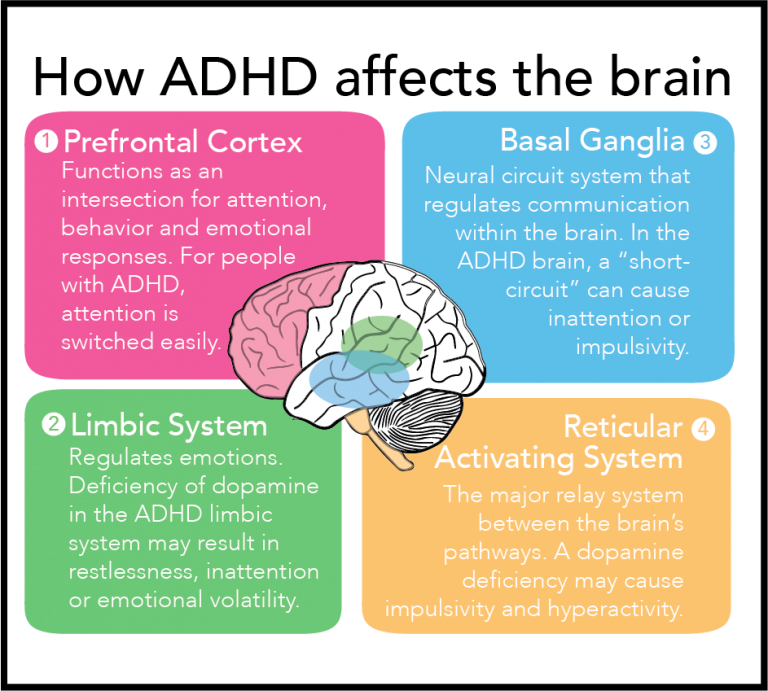 Keep in mind that if the baby sees the subject for the first time, the amount of attention becomes much narrower. The difference is also manifested in the external characteristics of the images. If at the age of 3 a child pays attention to the bright features of objects, sizes, then at an older age such qualities become less important. nine0003
Keep in mind that if the baby sees the subject for the first time, the amount of attention becomes much narrower. The difference is also manifested in the external characteristics of the images. If at the age of 3 a child pays attention to the bright features of objects, sizes, then at an older age such qualities become less important. nine0003
Sustainability is the duration of the period of concentration on the subject or activity. Psychologists believe that children 5 years old can focus on the process for up to 2 hours. If this is an interesting and entertaining game, the child can hold attention longer, and much less with a boring activity.
Selectivity of attention enables the preschooler to concentrate his attention on a more important process or object or on a separate stage of the action, which is necessary to solve the task. nine0003
Attention distribution is a feature due to which preschool children can successfully follow several objects or cope with several tasks at the same time.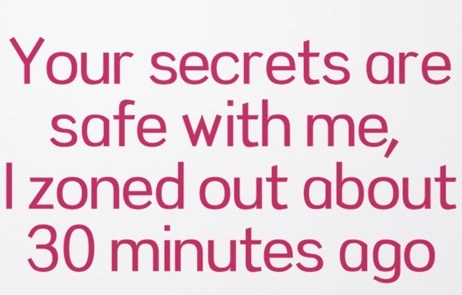
According to researches, rational and quick distribution of attention requires additional development and training. Keep this in mind when working with kids. It is important to study the individual qualities and characteristics of the baby and not to forget about them in the process of working with the child. Don't try to achieve the impossible. nine0003
The necessary exercises and activities for preschoolers should be selected to ensure the gradual development of attention without causing any special feelings. It is required to rely on children's curiosity, as well as individuality of thinking, which will be especially useful in the learning process.
How to increase the concentration of attention of a preschooler
- Nikolaeva Irina
- March 1, 2021
- Preparation for school nine0066
One of the most important keys to success in school is well-developed concentration.
Children who find it difficult to concentrate in the classroom often miss out on many learning opportunities and do not keep up with their peers.
Troubleshooting concentration problems can be difficult when a child is 8 or 9 years old. The best time to work on this skill is in the early preschool years when you, as a parent, can actively focus on it.
What is concentration of attention? nine0074
Attention or concentration is the child's ability to pay undivided attention to a specific task.
This requires blocking out all other stimuli, such as sound (classroom next door noisy), visuals (watching what's going on outside the window), or unnecessary information (inappropriate writing on a blackboard).
During the school day, children need to constantly concentrate on various tasks in an environment that can be very stimulating for some. nine0003
Monitor your child's concentration levels during preschool years and see if they increase over time. School will become extremely difficult and tiring for a child who is struggling to concentrate.
Like all other developmental skills, it is easier to develop at preschool age than at a later age.
If you are a teacher or a parent who understands the importance of the general intellectual development of the child and appreciates the importance of the game approach for preschoolers, you will enjoy a comprehensive school preparation program for children. nine0003
What is the average attention span of a preschooler?
The average duration of concentration for a preschooler is usually less than 15 minutes . That is 15 minutes completely focused on one task. For younger preschoolers - 5 minutes.
It is generally accepted that a child can concentrate for about 2 to 3 minutes a year, so a three year old can concentrate for about 6 to 9 minutes, a four year old for 8 to 12 minutes, etc.
This is a general guide only, and children differ in their development. Children can concentrate longer if they are interested and busy with something. nine0003
As children grow older, they may concentrate longer. In lower grades, half an hour is usually appropriate.
If you are concerned about your child's ability to concentrate, first ask yourself if you expect him to concentrate for a certain period of time. It's much more efficient to work on short tasks and take frequent breaks than trying to sit for an hour with a 4 year old.
A great way to refocus your child during class is to try these quick brain breaks. nine0003
This is how children's days at school are arranged. They are trained in a short time with a regular change of activities.
Activities to Increase Concentration in Preschoolers
You can develop your child's ability to concentrate in these simple ways.
1. Focus games
Play games with your child that require attention.
For example, a child playing a board game must remember whose turn it is, keep track of the dice score, remember the rules, and watch the game closely. nine0003
2. Activities with an end result
When doing certain activities, such as drawing a picture, children may simply stop when they lose concentration or get bored.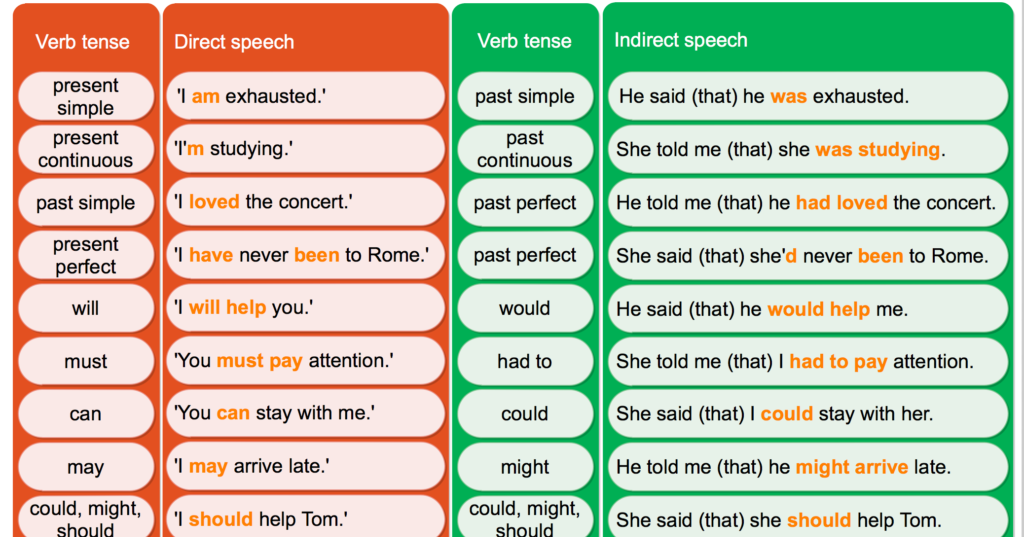
However, give your child a puzzle and he will most likely solve it, otherwise it will be incomplete. Provide these opportunities and your child will persist longer than usual, which will increase the duration of his concentration over time. nine0003
The best jigsaw puzzles for little kids are so strong and wooden. Older preschoolers may be ready for 24-piece puzzles.
3. Age appropriate activities.
Children will develop their concentration only when they engage in age-appropriate activities. If you give your child a puzzle that is too difficult, they will give up early and lose motivation.
If the task is too difficult or too long, your child will not find it meaningful and will lose interest. nine0091 Performing complex or formal arrangements will have the opposite effect of what you may have planned .
A reasonable amount of time to expect a child to focus on just one activity is about 2-3 minutes each year.
If you offer short activities that are challenging but not overwhelming, your child will gradually start spending a little more time as they get older.
4. Screen Time
Did you know that screen time shortens your child's attention span?
I once had a parent meeting where I had to tell my mother that her 4-year-old was having a hard time paying attention in class. He could barely concentrate for a minute or two and couldn't follow what the class was doing. His mother was shocked and told me that he could hours concentrate while watching TV. nine0003
There was a problem.
Watching TV is not concentration. Children are not actively engaged. They passively look at the device.
When a child watches TV, the images on the screen flash at an unnatural speed for the brain. With repeated exposure, the brain gets used to this stimulus.
When the child then tries to interact with his usual environment, he struggles to process the information that flashes at a natural rate. nine0003
A little scary.
Screen time is inevitable these days, but it can definitely be managed wisely.
5. Daily routine
Following a daily routine will help your child get used to everyday activities and teach him patterns.
When children know what is coming next, they are more likely to get involved and do it. If your child knows that now is the time for indoor play, he will quickly get comfortable and find a suitable play activity. nine0003
You won't have to struggle every day to get them off the TV because their 20 minutes of TV will have a separate time slot. Routine also gives a sense of security.
This gives you the opportunity to schedule activities for the day that stimulate concentration.
6. Sleep and Nutrition
Eating healthy and getting enough sleep per night will have a huge impact on your child's ability to concentrate.
Make sure bedtime is an integral part of this routine, as is a healthy breakfast. What your child eats in the morning directly affects their ability to focus during the school day. nine0003
7. Reading to your child
Unlike watching TV, reading to your child requires real attention and listening.
Reading is one of the most rewarding activities for your child. It's a fun and easy way to boost your child's concentration every day.
The more your child is interested in the story, the more he will cling to every word and pay attention.
Read about why bedtime stories are so important. nine0003
For me, there is nothing better - or more educational - than a good story by Dr. Seuss or Julia Donaldson. My kids can never get enough of them.
They are so good for learning vocabulary and developing auditory awareness (through rhyming and repetition) and they are so entertaining that your kids will pay attention.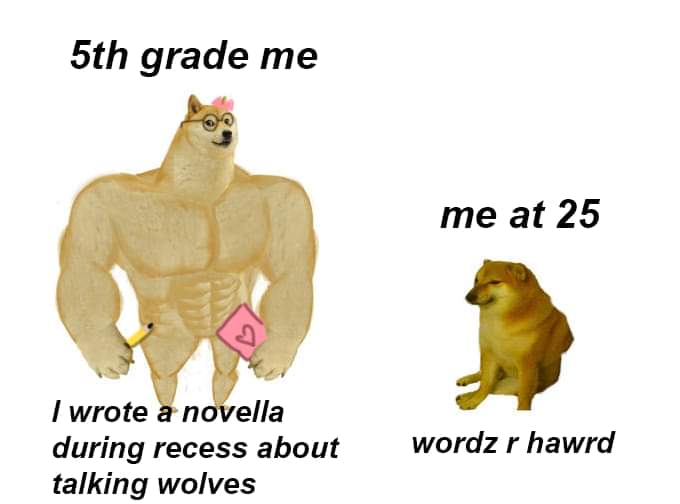
8. Regular exercise.
It has been proven that exercises develop concentration in a child. It helps with memory, attention, mental acuity and reduces anxiety as well as increases the child's energy. nine0003
Make sure your children are active. The best way to do this is to encourage regular free play, especially outdoors.
9. How your child learns
Children have different learning styles and will be better able to concentrate and learn in their preferred style.
Visual learners prefer to see what they are learning, auditory learners prefer to hear what they are learning, and kinesthetic learners must touch and experience in order to learn. Most young children prefer kinesthetic learning and learn best from physical experience. nine0003
Pay attention to how your child pays attention the best!
10. Breaks in movement
Exercise not only helps children develop concentration in general, but also helps to instantly restore strength and recharge their batteries.
The most effective way to take a break during class is movement .
Think about how you feel when you sit at a computer for several hours and work. Just get up, make a coffee and walk for 2 minutes to regenerate your body and make you feel energized when you get back to work. nine0003
Stop the preschooler often during long tasks and take breaks to move. They may only last a minute. They will improve circulation and boost your child's concentration so they can keep exercising for a few more minutes.
For children, breaks in movement not only help them refresh and recharge, but also provide an opportunity to develop general motor skills such as core strength, coordination and balance, and even cognitive skills.
Here are 18 quick break exercises to try and improve your young child's attention span. They are also great for older kids. nine0003
18 quick exercises to improve concentration
Sitting exercises
Sit with your legs stretched out in front of you.
1. Shake your knees and then your feet.
2. Bend over and hold your toes.
3. Stretch your toes forward.
4. Pull your toes back.
Standing Exercises
Moving Arms
5. Swing your arms up and down to your side like a bird in flight. nine0003
6. Shrug. Shrug your shoulders in turn, forward and then back. Then shrug your shoulders together, forward and then back.
7. Swing arms forward and backward.
Turn your arms out to the sides like a windmill. Do small rotations first, then wider ones. Start with one hand at a time, then with both hands at the same time.
Walking
9. Take small steps back and then large steps.
10. Walk sideways first to the right, then to the left. nine0003
11. Imagine that you are walking on a rope. Walk in a straight line.
Balancing
12. Stand on one leg. Count to 5, then switch places and switch to the other leg.
13. Stand on your toes. As you balance, close your eyes and stay on your tiptoes.
14. Stand on your toes and walk around the room.
15. Jump with feet together, then in turn.
Lying exercises
16. Pretend to be a ball: squeeze your knees tightly. Pretend to be a ball and swing back, forth and around.
17. Seal: Lie on your stomach. Extend your arms and legs while holding your feet. Then keep your legs bent, spread your arms out to the sides and lift off the ground. Walk with your hands forward, dragging your feet.
18. Airplane in flight: lie on your stomach. Raise your arms and keep them in the air like an airplane. Then move your hands up and down.
Does my child have ADHD?
ADHD, or Attention Deficit Hyperactivity Disorder, is characterized by impulsivity, hyperactivity, or lack of attention. Some children exhibit all three qualities.
If you feel like your child is struggling to concentrate, it could be due to several factors such as anxiety, immaturity, anger, etc.